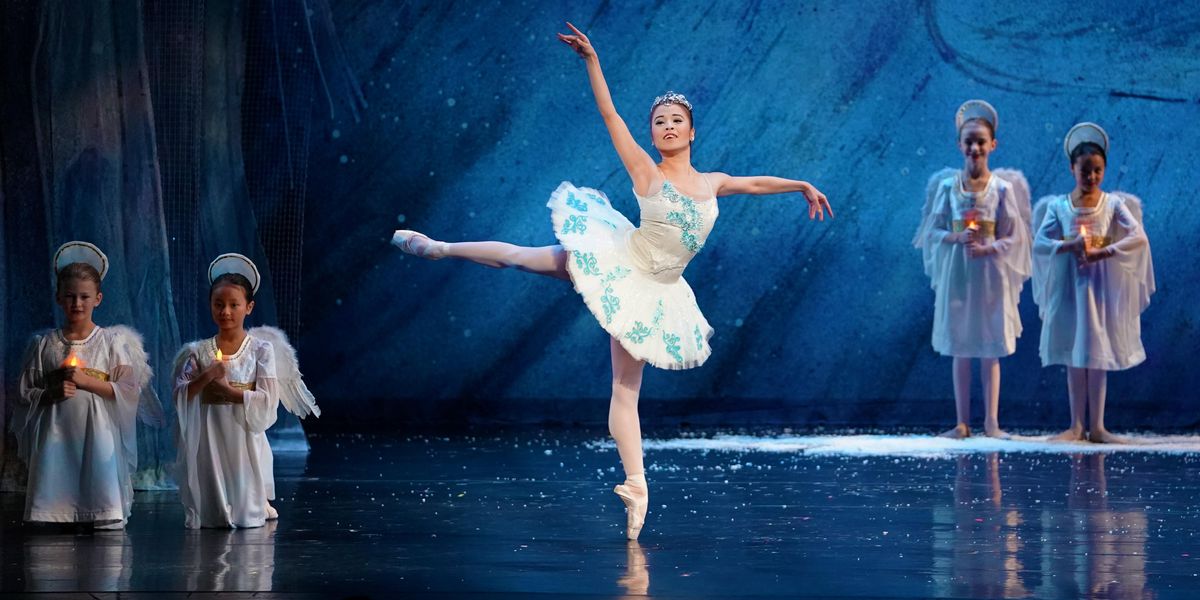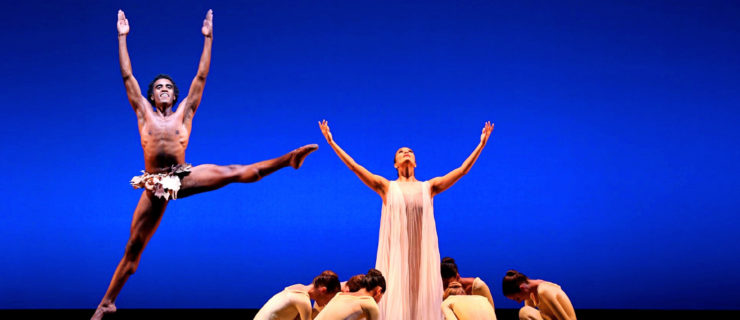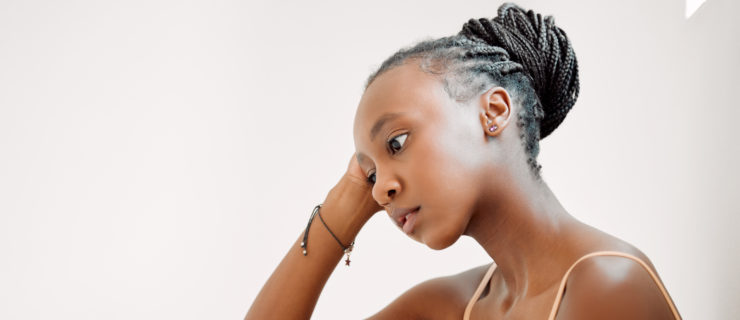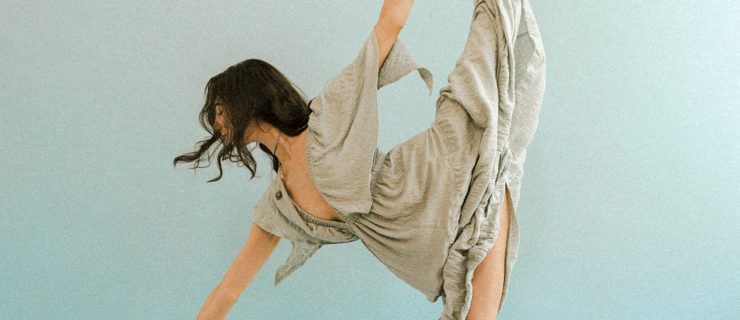The Dancer’s Guide to Getting Through the Holidays
“The disappointment hits in waves,” Calista Jones says of this year’s canceled production of The Nutcracker. A high school senior who performs with the Appalachian Ballet Company in Maryville, TN, Jones was excited to be cast in soloist roles this year: the Raggedy Ann doll in the party scene, as well as the lead Russian dancer. “I wasn’t surprised when the show was canceled, but I’m still sad about it,” she says. “My holiday season has revolved around Nutcracker for seven years, and now it’s not here.”
Canceled Nutcrackers are just one of many “bah, humbug” moments that dancers are likely to encounter over the pandemic-shadowed holidays. Add in some more common seasonal stressors, like family gatherings and training-routine shake-ups, and you have the perfect recipe for a tough time. Thankfully, dancers are known for being adaptable and resilient: Here are some tips to keep your mind merry and bright as 2020 comes to a long-awaited end.
Fighting Food Guilt

(Getty images)
“The holidays can be a pressure cooker for dancers who have issues with food,” says registered dietitian nutritionist Kristin Koskinen, RDN, LD, CD. That’s especially true in 2020. You may love and anticipate seasonal goodies. But after a year of less rigorous training, and without Nutcracker keeping you on your toes, you may feel guilty even thinking about having a treat.
For those struggling with food guilt, Koskinen proposes a mindset change: “We use the term ‘fuel’ a lot, but I’d like to replace it with ‘nourish,'” she says. “Nourishing yourself is proactive, rather than restrictive.” It’s also about the whole person, not just your physical body. In that sense, a holiday cookie can be nourishing. “If a treat brings you joy, let it bring you joy,” Koskinen says. “There are no good foods or bad foods, and you are not good or bad based on what you eat.”
Of course, there are ways to be mindful as you indulge. Have a healthy meal first, rather than filling up on sweets. Make yourself a small plate of treats, instead of snacking endlessly. If you enjoy baking, eat some now, and freeze some for later. Above all, “Be gentle with yourself,” says Nadine Kaslow, a psychologist who works with dancers at Atlanta Ballet. “Give yourself permission to enjoy the season without going to extremes.”
Dealing With Unsupportive Family
Are you dreading holiday gatherings or Zoom chats with family members who don’t support your dance dreams? Prepare some talking points before your dad starts his lecture on how COVID-19 has killed the arts or your aunt begins gushing about your cousins’ more lucrative career paths. “This could be a time to share why you are so passionate about dance,” says Kaslow. “Talk about what you love. Then, let your family know you understand their concerns. The arts have been devastated this year. Because this time is extra-challenging, you need extra support—if not financial, then emotional.”
Stress to your family all of the ways in which dance training benefits you. What have you gained, aside from strength and flexibility? “Studying dance gives you life’s lessons in an embodied way,” says Jan Erkert, head of the dance department at the University of Illinois at Urbana–Champaign. “Responsibility, dedication, creative thinking—those things are at the heart of what we do. Parents should know that those life skills will serve dancers in any job.” Overall, know that you’re not alone in dealing with these kinds of conversations. Make sure to prioritize some time over the holidays to connect with, and vent to, your fellow dancers. “We’re all going through it,” says 16-year-old Sydney Jones-Rumph, who trains at Dance Xperience in Mount Laurel, NJ. “What helps me the most is having my friends with me.”
Finding Space to Move at Home
When things are already difficult, small frustrations can loom large. For dancers who are still studying remotely—or those whose schools did reopen but have now closed—the battle over dance space could be the last straw. It’s too cold in many areas to dance outside. Indoor rooms that were fine in April may have been rearranged for holiday decorations. (A fellow teacher recently told American Repertory Ballet dancer Nanako Yamamoto she was afraid a student was going to knock down her Christmas tree!)
Instead of letting resentment build up, problem-solve. Perhaps fragile ornaments can be left off the tree this year, just to be safe. Maybe your family can wait to put out presents until Christmas Eve. If necessary, turn to your teachers for help. “I’ve guided students in setting up their environment for class,” Yamamoto says. “We can also decide to focus on little details, instead of big movements, while you’re at home.” Erkert is having her college students explore concepts like weight, spiral and articulation of joints within self-created, structured improvisations that leave them room to adapt to their spatial limitations over winter break. “Conditions aren’t ideal,” she says, “but we have to choose to learn in the situation we’re given.”
Looking Ahead to 2021

Calista Jones performing in the Nutcracker in 2019 (Abigail Werner, courtesy Kylie Morton Berry)
A new year normally represents a fresh start, but you may not have that sense this year, as the pandemic drags on. Feeling anxious about the future can cast a shadow over the whole holiday season. “I’ve been worrying a lot about my studio getting shut down again,” Jones-Rumph admits. “It’s hard to stay motivated when I’m at home by myself. I want things to be getting better, but it feels like they’re getting worse.”
In times of uncertainty, “Figure out what you can control, and take as much control as you can over those things,” Kaslow says. “Uncertainty makes us feel powerless. If you’re intentional about things you can control—warming up properly, taking this many classes per week—it’s easier to let go of what you can’t control. We call that ‘radical acceptance.'”
Count down to 2021 by setting attainable goals: Talk to your teachers about what would be realistic for you. Be sure to plan for the circumstances you’re in, not the ones you wish you had. “COVID-19 has taught us that nothing is certain,” Erkert says. “But it’s also taught us self-agency, perseverance, determination. Those are such valuable lessons.” If you’ve made it to the end of 2020 without giving up hope, congratulate yourself! This holiday season, that’s something worth celebrating.




